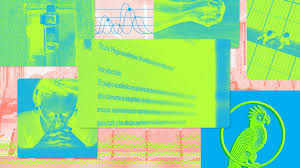Maywa Montenegro: The Intersection of Agroecology, Pedagogy, and AI
Maywa Montenegro is a researcher whose work at the intersection of agroecology, pedagogy, and artificial intelligence (AI) is shaping the future of sustainable agriculture. Her innovative approach to tackling complex agricultural challenges through interdisciplinary collaboration is not only pushing the boundaries of traditional farming methods but also reshaping the way we think about the future of food production.
Agroecology, a holistic approach to farming that emphasizes sustainable practices and the integration of ecological principles, is at the core of Montenegro’s work. By combining traditional farming knowledge with cutting-edge AI technologies, Montenegro is able to develop innovative solutions that promote biodiversity, regenerate soil health, and increase resilience to climate change.
Montenegro’s research goes beyond just developing new agricultural techniques; she is also deeply committed to education and outreach. Through her work in pedagogy, Montenegro aims to empower farmers and communities with the knowledge and tools they need to transition to more sustainable farming practices. By incorporating principles of agroecology into educational programs, Montenegro is helping to build a new generation of farmers who are equipped to address the challenges of a rapidly changing climate.
One of the key aspects of Montenegro’s work is the use of AI to analyze and interpret complex ecological data. By leveraging AI technologies, Montenegro is able to identify patterns and trends in agricultural systems that would be impossible to detect through traditional methods. This not only allows her to develop more effective farming techniques but also to provide valuable insights to farmers and policymakers on how to improve the sustainability of agricultural systems.
Montenegro’s work has the potential to revolutionize the way we think about agriculture and food production. By combining agroecology, pedagogy, and AI, Montenegro is paving the way for a more sustainable and resilient food system that can meet the challenges of the 21st century.
In conclusion, Maywa Montenegro’s research at the intersection of agroecology, pedagogy, and AI is pushing the boundaries of sustainable agriculture and reimagining the future of food production. Her innovative approach to addressing complex agricultural challenges through interdisciplinary collaboration has the potential to transform the way we farm and feed the world. As we face growing environmental pressures and the need for more sustainable food systems, Montenegro’s work offers a beacon of hope and a roadmap for a more resilient and regenerative future.

